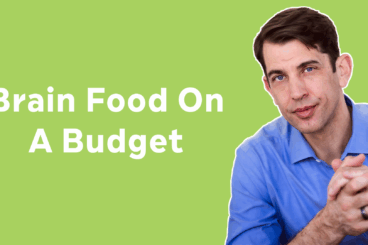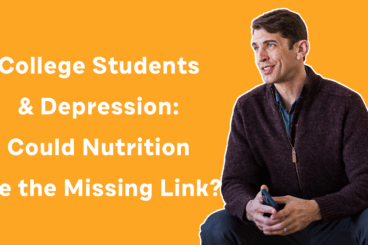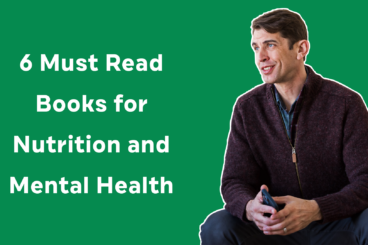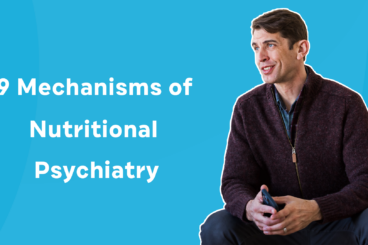Do you secretly love potatoes, but you feel that you can’t? Hi everyone, I’m Dr. Drew Ramsey. I’m a psychiatrist, nutritional psychiatrist, and this is a video to give potatoes some love and help us enjoy this very nutrient dense food that I’m going to argue has been just falsely maligned. Now, potatoes are usually pitched as a bunch of carbs, and we all know carbs are something we’re trying to maybe moderate in our diet. We were trying to go for more crunchy vegetables. Also, when you look at the big kind of data sets about what are the foods that are most responsible for our obesity epidemic, often the potato is at the top of the list. Now, I bet you can guess why that is. Potato chips and french fries are not the healthiest form of potato, and that is the main form that people eat.
However, this video is to help you reclaim the health benefits of potatoes because in fact, they’re actually amazing for you. And I want to focus on two aspects that are really important, especially with the new modern science of nutritional psychiatry and mental fitness. This is the new framework that I’ve been proposing that we want to use when we look at mental health and think about building our mental health. We call that mental fitness. And how do we do that? Well, we do that in part by challenging some of the ideas that we have about mental health, causes of mental health problems and what are good mental health solutions, which brings us to the potato.
I think potatoes are a great part of a good mental fitness and mental health plan. And let me tell you why. So let’s focus on just two aspects. I’ll throw in a third at the end, because there’s a cool aspect to potatoes that I feel nobody knows. Let’s start it out. There are 4,500 different varietals of potatoes in the world. You go to a land like Peru and find them in all colors, all sizes. It’s amazing the diversity we have of potatoes. And anytime you see something like that that’s co-evolved with us and is still around and in that kind of abundance, I just kind of take a step back and wonder if something’s going on here. I think the initial reaction almost everyone has to potato is they’re delicious. Even when we’re feeling a little off, it’s one of those simple foods we go to. There are good reasons for that. So let’s talk about them right now.
This is going to surprise you about potatoes. When I say potassium, you think what Banana, right? That’s in fact the only potassium food a lot of people, even myself back in the day, before I learned about nutritional psychiatry, that’s the only one that we can name, right? Do you want to name a food that has twice as much potassium as a banana? That’s right, the potato.
Now, why potassium? Why is that so important? Well, potassium, like a lot of these minerals in our body, like sodium, magnesium in particular, they’re really important for nerve conduction. For all of the brain energy impulses going on, every nerve signal you have, it depends on potassium. Potassium is so important. Our cells have 50 times more potassium inside of them than are in your bloodstream. And so every heartbeat depends on potassium. It is a really critical nutrient. I guarantee you, odds are you’re not getting enough of it in your diet. Why is that? 97% of Americans don’t meet the recommended daily allowance for potassium. Again, one of the most important nutrients for our nervous system.
Now my work as you know in nutritional psychiatry is all about trying to get you the foods that have the most nutrients. When you look at my books like Eat Complete, which goes over the 21 most important nutrients, it lists each of the foods that have the most and people are often surprised potatoes are on the list. So potassium is an amazing aspect of potatoes.
The second really incredible part about potatoes is what’s called resistant starch. Now, if you take potatoes and cook them and then cool them in your refrigerator, you’re kind of melting the sugar molecules and then they’re reforming into what’s called resistant starch. Resistant starch is starch that we don’t break down as much. I know another starch we don’t break down, it’s called fiber. We all know we’re trying to eat more fiber. The majority of Americans don’t get enough fiber. Resistant starch is getting that from a potato and if you have it as a French fry or a potato chip, you’re really not getting the health benefits. If you swap that out, for some roasted small potatoes, little rosemary on there, a little olive oil, sea salt, bam, right? If we cool those down overnight and then heat them up and eat them the next day, you’ve created resistant starch.
Again, the new science of mental health asks you to really take fiber and starches into consideration when you’re thinking about brain health because of this new science. I get into it in my latest book, Healing the Modern Brain. It’s called the microbiome. And the microbiome are all of the organisms that live in your gut, particularly in your colon. They help us digest our food, but they do so much more than that.
And a lot of times people don’t realize incredible function of the microbiome is to regulate the immune system. So as we’re thinking about things like inflammation or brain inflammation, right? How do we get that settled down? Because we know it’s tied to so many of our illnesses like depression, dementia, ADHD, anxiety. We tamp down brain inflammation by taking better care of our microbiome and potatoes and particularly refrigerated potatoes, real whole potatoes with the skin are one of the ways that we do this by feeding our body more of these healthy starches.
Potatoes are one of those sources of iodine, and iodine is absolutely central to our thyroid functioning. Thyroid is the center of your metabolism, it’s kind of the master regulator of your metabolism.
If you are hyperthyroid, too much thyroid, you’re very anxious, you’re losing weight, your metabolism is going too fast. And if you’re hypothyroid, the exact opposite, you’re sluggish, slow, gaining weight, cognitive fog. So iodine, absolutely essential, another amazing nutrient in potatoes.
Then there’s the phytonutrients, right? All the plant-based nutrients. These aren’t traditional minerals and vitamins like A and C or potassium but they’re molecules that plants make to protect themselves. As we’ve evolved with plants, our body recognizes a lot of these molecules and uses them. A lot of them are really powerful antioxidants. So plants like potatoes are always giving us phytonutrients.
This video is in defense of potatoes, trying to understand and get a little bit of that nuance of the modern diet and modern food scape where we can have potatoes in one form. Wow, not healthy at all for us, or we can educate ourselves, get a little bit more knowledge around potatoes and what nutrients they provide and what forms are really healthy and incorporate this economical delicious food into our food plans.
Everybody, I’m Dr. Drew Ramsey. If you like information like this, figuring out the foods that are best for our mental health and our brain health, please check out our free newsletter, Friday Feels. I’ve also got great books on the subject. I mentioned Healing the Modern Brain, Eat to Beat Depression and Anxiety and Eat Complete.
Thanks so much for tuning in. Please share this video with somebody who needs more potatoes in their life. All right, everybody, I’ll see you in the next one. Thanks so much.



